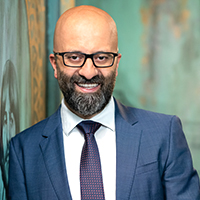There’s never a dull moment in the day of an oncology clinic — you’re at the forefront of helping patients navigate the daunting and painful waters of cancer and recovery. With life saving innovations emerging each year, the chance of recovery for many patients increases.
Though treating patients and helping them through their stress is rewarding, it comes with many challenges. The failure of treatment and the loss of patients can be extremely difficult for oncologists and support staff to deal with. Furthermore, the demanding schedule of looking after patients is often exacerbated by inefficiencies in ingrained paper systems and an excessive list administrative tasks. With this potent mix of factors, stress in health care professionals is a real and rising issue in the medical field.
Ultimately, providing excellent patient care requires providing excellent practitioner care too. Like every complex problem, there’s never a quick fix. Whether you’re managing a large organisation or growing a private practice, empowering your staff to tackle the challenges of stress is crucial to avoiding burnout and ensuring long term quality of care. These simple tips are a starting point, embodying a need for consistent and long term efforts.
1. Spot the symptoms early
Identifying an issue is the first step to addressing, preventing and curing it. Therefore, it’s crucial to keep these symptoms in mind, in particular through opening a dialogue among your staff about the realities of burnout. The below predictors should not be ignored as they often suggest if the practice is getting the better of your team:
- Having a high tolerance to stress — while this seems like a good character trait for a professional in the oncology field, constantly operating under high stress ranks as the number one predictor for burnout. Therefore, it’s important to know just how much stress you’re battling day to day.
- Being in a chaotic practice environment — caring for patients is often the single biggest motivator for practitioners, however caring for patients in an environment that isn’t supportive or conducive can often lead to burnout.
- Disagreeing with leadership — whether at a large hospital or private practice, physicians want to share the same values for medicine and patient care as the people leading them. Misaligned values need to be addressed early on.
- Being the emotional buffer — working with patients often requires more than just medical expertise. Oncologists will often buffer patients from the stressful environment, taking on the stress themselves.
- Too much time spent on admin – often a large administrative burden brings considerable stress onto practitioners. Inefficient systems and processes mean practitioners get less patient time and more administrative time, often performing administrative work that could have been more effectively delegated.
- Lacking control over their work schedule and free time — most oncologists work a long set of hours each week. Increasing visibility and control over their schedule can alleviate some of the stress that naturally comes with a demanding profession.
2. Build a support network
“Few physicians deal with death and grieving as often as oncologists”
— Laurie Lyckholm, MD
One of the best ways to minimise stress in health care workers is by empowering individuals with their own support networks. It’s essential for all medical professionals to be able to communicate frustration, anger, sadness and grief to avoid build up of these emotions. Talking and sharing feelings with colleagues who can relate through similar experiences is a great coping strategy.
As for medical practitioners who don’t have a wider support network and are unsure of where to turn, there are several helplines available to provide a helping hand — these are people who understand the unique demands of practising medicine.
Available helplines include:
- The Doctors’ Health Advisory Service offers a dedicated 24/7 line
- Peer Support for doctors by doctors is an anonymous support call service for Tasmanians and Victorians
- CRANAplus Bush Support Services is a toll free 24 hour telephone counselling service available for all remote health care workers and their families.
- The Rural Family Medical Network provides family programs, networking opportunities, newsletters and grants for spouses and families of medical practitioners who’ve moved to rural areas — including NSW, QLD, WA and VIC.
- Avant and MD National provide legal advice for medical practitioners.
- BeyondBlue provides 24/7 support for all Australians experiencing anxiety and depression.
3. Support your practice staff
Healthcare employees placed the highest percentage of calls for stress and anxiety by industry, often due to environments that don’t support their workloads, performance and ultimately job satisfaction. Common signs of burnout among support staff include:
- Inability to concentrate, poor judgement, headaches and high blood pressure.
- Lack of general efficiency, tardiness at meetings, increased absenteeism and low morale.
- Emotional symptoms such as increased impatience and irritation, increased difficulty in empathising with patients, emotional depletion, a sense of overwhelm
- Overuse of alcohol and/or tobacco.
Prevention is better than a cure, and investing in your support staff will not only avoid staff burnout but also lighten the load on overworked oncologists. The key to prevention depends on identifying the roots of the problem and addressing them early on, whether it be hiring more support staff to reduce the administrative burden or implementing a new technology that streamlines existing systems to create more efficiency. A long term solution to reducing stress needs to encompass all facets of work life.
Offer organisational support
It’s important for health care workers to feel that the practice is supportive, values their contribution and cares about their well-being. Offering an avenue to listen to their complaints, assisting with their work-related problems and treating them fairly will ensure better job satisfaction and coping with the stress of working in oncology. This can be as simple as an open door policy for any managers or as structured as a monthly or quarterly conversation about how they’re going.
Improve your workflows
Increasingly, many practices are switching to cloud-based electronic health records (EHR) solutions, offering teams better ways of handling clinical and administrative tasks, minimising inefficiencies and providing patients with a better experience. For both support staff and oncologists, this ultimately means having more time with patients.
For oncologists, the ability to easily delegate more tasks and having easier access to their schedule provides better prep time. An additional five minutes per patient has shown to increases patient satisfaction, which can help reduce stress for practices.
Empower your team
Great technology to support your support team is just the beginning. Investing in training is also a must for equipping your team. Great patient care includes being the smiling and supportive presence, the helpful and informative voice and the authoritative figure helping patients navigate health care options, next steps in the recovery process and more.
4. Work towards a balanced lifestyle
The unique demands of oncology and other specialisations mean that starts are early and days are long. The challenge is often striking the work and life balance to ensure there’s enough time for rest, family, friends, exercise and healthy eating.
There are many affordable products and services available to help you find your balance, such as:
- 24 hours gyms for an exercise routine that fits into your schedule.
- Balanced meals delivered to your home or office, using services such as HelloFresh or MenuLog.
- Sleep pods and other rest areas to allow you opportunities for catching up sleep in the office.
- Apps such as Headspace to help you destress and meditate throughout the day.
While something as small as purchasing a nutritious lunch may free up a mere 20 minutes in your routine, those small changes are incremental in better time management.
Over to you
Though the many challenges of the medical oncology lifestyle mean stress is an ongoing issue, burnout isn’t an inevitability. There are ways of equipping practices to minimise the stress in health care professionals. At the end of the day, managing stress and avoiding burnout is about empowering the whole community of oncologists and support staff — you don’t have to go it alone.
With a record 45.8% of physicians reporting symptoms of burnout, the issue is by no means unique to oncology. Stress-related burnout is a spiralling issue affecting a large proportion of healthcare professionals everywhere – and it calls for proactive efforts and an agile approach to address it.
Using insights and real life learnings, we’ve created our most recent guide on How To Run Your Practice Like An Entrepreneur. It’s an essential resource for tackling practice inefficiencies, proactively addressing problems such as physician burnout, and balancing the business demands of a medical organisation. Simply click below to download your complimentary copy.
Clinic to Cloud does not provide tax, legal or accounting advice. This material is for informational purposes only and is not a substitute for independent professional advice. You should consult your own tax, legal and accounting advisors before engaging in any transaction. See the Clinic to Cloud Disclaimer for further information.




